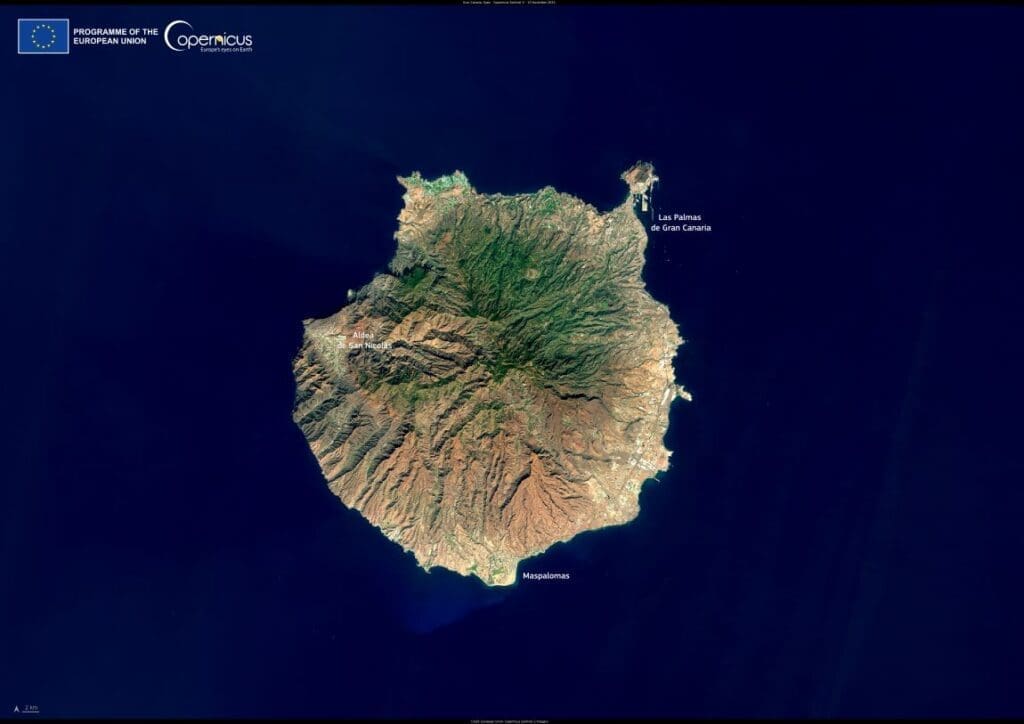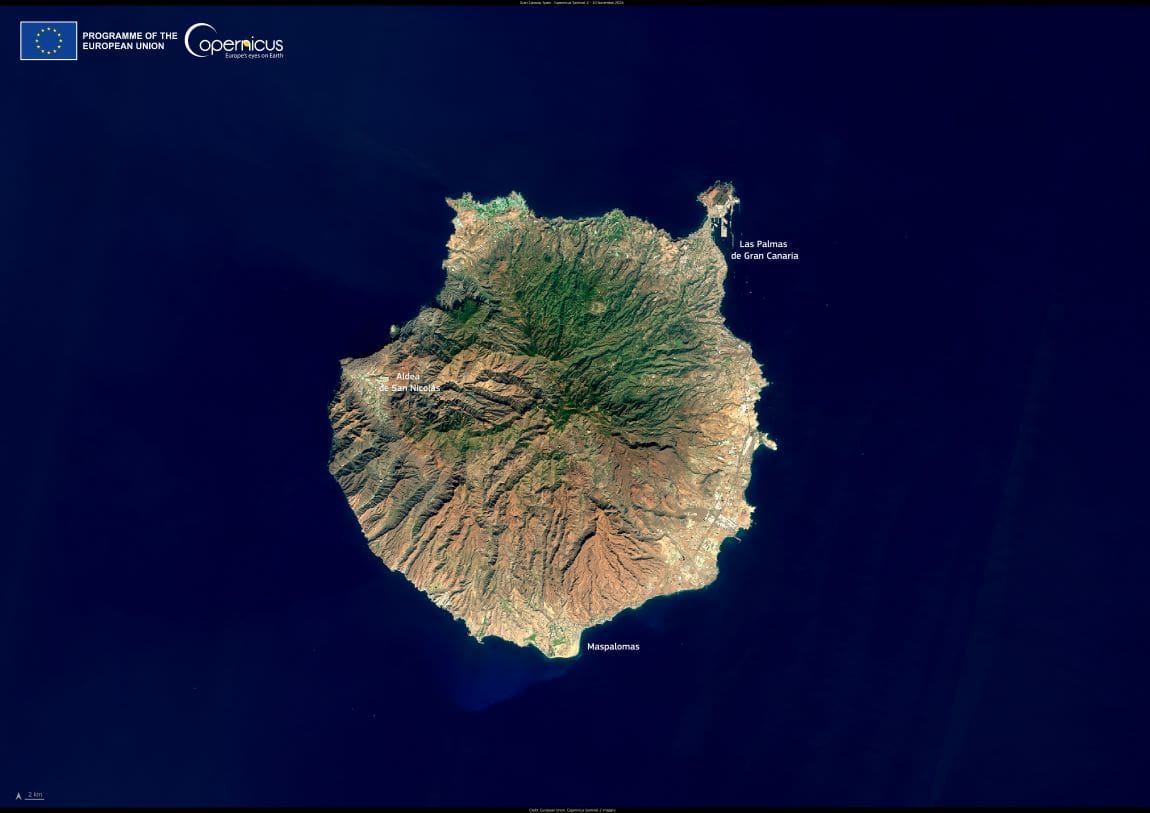During the second weekend of November 2024, the Spanish Canary Islands were affected by a light haze and record-breaking temperatures for the month.
La Aldea de San Nicolás, a municipality of the island of Gran Canaria, reached 35.7°C on 9 November. This surpasses the previous record set in 2023, when the Islands were hit by the warmest temperatures for the month of November up to that point. Meteorologists have attributed the haze and heatwave to a combination of warm air masses and Saharan dust carried by eastward-moving winds.

The heatwave continued on 10 November. In Gran Canaria, visible in this Copernicus Sentinel-2 image from the same day, the air temperature exceeded 34°C.
The Copernicus Services deliver essential information for monitoring environmental trends and their impacts worldwide. For instance, the Copernicus Atmosphere Monitoring Service (CAMS) tracks and forecasts air quality, while the Copernicus Climate Change Service (C3S) provides valuable insights into climate trends across Europe and globally. This data supports informed decision-making to promote better health outcomes.
Featured image credit: European Union, Copernicus Sentinel-2 imagery




